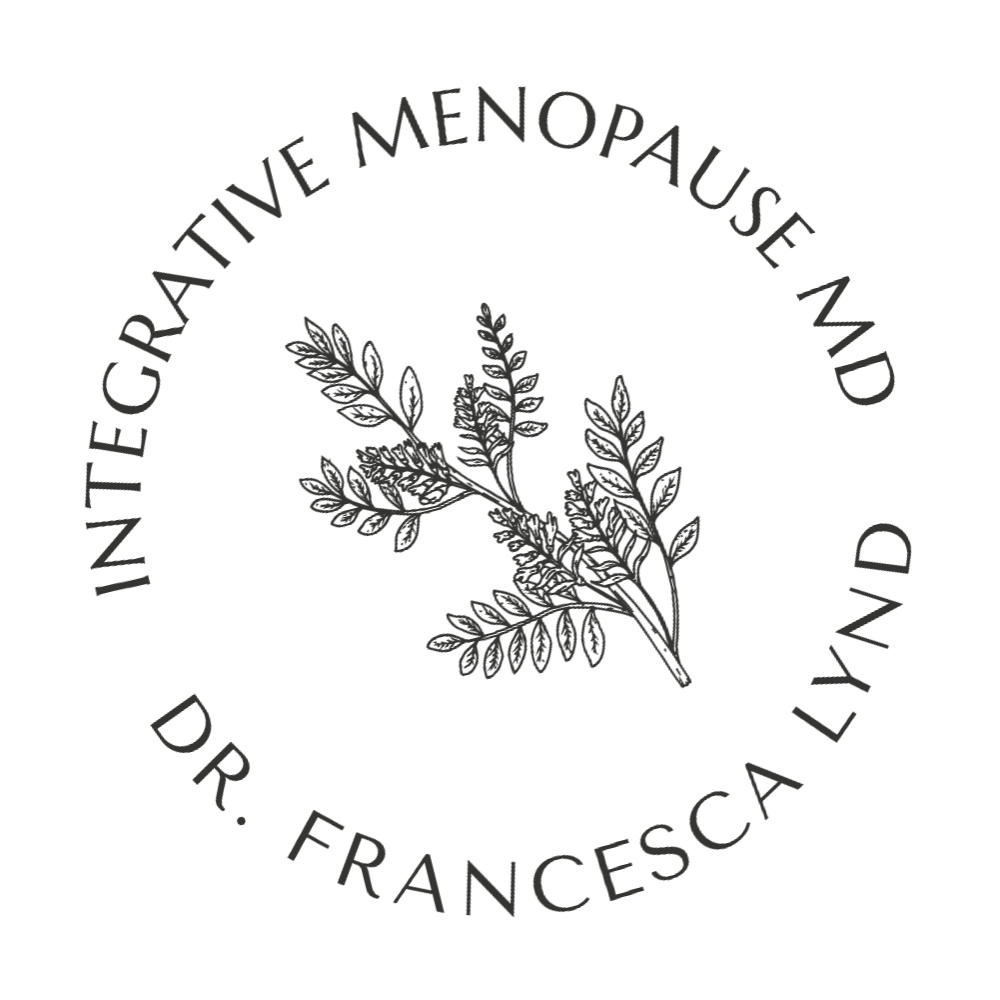The Missing Link: Testosterone's Surprising Influence on Menopause
Sep 23, 2023
Get ready to dive deep once again into the fascinating world of hormones, where we’re about to unravel the often-overlooked and misunderstood hormone…testosterone. While most of us associate testosterone with male health, vitality and wellbeing, there’s a hidden secret that is not widely known: testosterone is just as vital for women’s health. This crucial role often goes unnoticed or underestimated. In this blog post, we’re embarking on a journey to explore the role of testosterone in menopausal women’s health, covering everything from symptoms to when and if you should consider replacement therapy, the complexities of dosing and potential side effects as well as some natural options to consider.
You might think of estrogen as the quintessential “female hormone”, but here is a jaw dropping fact: when estrogen and testosterone are converted to the same measuring units, women actually have more testosterone than estrogen in their bodies — by orders of magnitude! In other words, testosterone is the predominant sex hormone and is incredibly important for women too! Unlike estrogen, which takes a rather sharp nose dive at menopause as our ovaries start to wind down, testosterone remains relatively stable and declines much more slowly. While estrogen dwindles due to declining ovarian function, about 50% of testosterone comes from our adrenal glands, and this source doesn’t experience the same sharp decline.
But even though testosterone doesn’t nosedive like estrogen, some women are quite sensitive to these changes and experience symptoms of lower testosterone even when the levels are within the normal range for females. It is not uncommon for women to notice a decrease in their sexual desire during menopause and testosterone plays a pivotal role in maintaining a healthy sex drive. For some women, even a small decline in testosterone can lead to a loss of interest in intimacy.
Weight gain during menopause is a common concern, and lower testosterone contributes to muscle loss and increased fat accumulation making weight management a real challenge.
But it's not just about physical changes. Lower testosterone can also affect your mental well-being, leading to physical fatigue, anxiety, irritability and depression.This hormone seems to have a say in regulating your mood and energy levels. Changes in cognition, memory loss and insomnia are also symptoms that some women experience with lower testosterone levels. The interesting thing is that these symptoms often pop up at the time of the menopause transition and aren’t always alleviated with traditional estrogen and progesterone hormone therapy.
So, what can women with these symptoms do? Many consider testosterone replacement therapy. But before we delve into that, it’s crucial to bear in mind that while testosterone levels may be lower, it’s not a guarantee that simply replacing testosterone will resolve all the challenges you’re facing. You are so much more than just your hormones.
Now let’s talk about testosterone replacement. Currently, in the US, testosterone replacement is generally recommended only for postmenopausal women with Hypoactive Sexual Desire Disorder (HSDD)- this is the term that is used for low libido that is bothersome to the individual woman (not her partner). If low desire is not bothersome for her, then this diagnosis does not apply. Unfortunately, there is no FDA-approved testosterone product for HSDD in the US, which is rather perplexing. In England and Australia, testosterone has been available and licensed for use for over six decades, it’s high time we revisited the safety data.
Here’s a mind-boggling fact: testosterone is the most abundant sex steroid hormone throughout your life, and some even question whether estrogen is the hormone that truly needs replacement during menopause. As far back as 1937, testosterone had shown promise in treating menopause symptoms effectively and safely.
But why is testosterone so important? Well, there are functional androgen receptors in nearly every tissue in your body - from your heart to your brain, reproductive organs to skin and bone, testosterone plays a role.
Now if you and your doctor decide that testosterone replacement is worth a try, then you have a few options in the US. None of them are perfect though.
First, a physician may prescribe FDA-approved products that are dosed for men, and then you, as a woman, would have to dose at about one-tenth the dose meant for a man. The burden is on the woman to figure this out. This is a hassle and potentially risky.
Second, you could work with a physician comfortable with a reputable compounding pharmacy to create a cream tailored to you. However this comes with its challenges, like figuring out absorption and being cautious about transferring testosterone to someone close to you or your pet.
Lastly, there are pellets, but I’m not a big fan of this option. These tiny pellets are inserted into your body with the intent to slowly release testosterone over three months. Once placed, you cannot control the dosing or alleviate side effects if they occur. The placement and depth of the pellets can affect their impact, and you can’t remove them once they’re in. In some cases, excessive testosterone levels can lead to disturbing side effects like hair loss, acne, and voice changes. If your profession relies on your voice, be aware that it may not return to normal after discontinuation.
Here’s a crucial point: most data on side effects are related to women taking oral testosterone. Transdermal testosterone, on the other hand, appears quite safe. When taken orally (not transdermally), testosterone can increase aromatase levels, which is the enzyme that converts testosterone to estrogen. This can lead to excess estrogen levels. Aromatase activity tends to increase with age, excess alcohol, insulin resistance, a processed diet and a sedentary lifestyle.
So it might be best to choose one of the first two suboptimal options for now and understand the associated risks. Hopefully, in the future, the US will offer better choices for women.
Whether starting with testosterone replacement or choosing a natural option, a baseline check of both testosterone AND estrogen blood levels is important due to aromatase activity. Perhaps it is best to consider testosterone replacement as a back up plan, especially considering the limited availability of suitable products in the US. Rechecking testosterone and estrogen levels regularly is important when on testosterone replacement therapy.
However, even for women diagnosed with HSDD and considered “appropriate candidates” for testosterone replacement, its wise to consider non-hormonal approaches as well.
One of the most effective ways to increase testosterone is by lifting heavy weights, but do so gradually. Ideally, work with a trainer under physician guidance to prevent injuries as recovery becomes slower than when you were younger. It is amazing that weight lifting would have such an effect on testosterone levels!
Building muscle mass also becomes more important for preventing menopausal weight gain. As you age, muscle naturally decreases and if you continue with the same habits, you will notice fat accumulate around your belly. Focus on maintaining muscle mass, not accumulating fat!
But how do you do this? Optimize your nutrition.
This means providing your body with the right tools for hormonal health. Eat more plants, especially the cruciferous ones like broccoli, bok choy, cauliflower, Brussels sprouts and kale which contain indole-3-carbinol believed to help balance hormone levels when consumed as actual food.
Zinc is essential for testosterone production., so enjoy nuts, oysters and lean meats.
Healthy fats such as those found in salmon and flaxseed, support hormone balance by increasing omega-3 fatty acids.
Vitamin D, obtained from sunlight and some dietary sources like fatty fish and fortified dairy, can boost your vitamin D levels, enhancing testosterone production. In some cases, supplements may be necessary.
Some women with low libido prefer herbal remedies. Several herbs like Tribulus Terrestris, Maca Root, and Fenugreek have been studied and shown to be beneficial for some women. These herbs are available in supplement form and incorporating Maca Root powder and Fenugreek into your diet can be quite straight forward.
Remember, you have the power to take control of your hormonal health during menopause. There are numerous options to choose from and there is no one-size-fits-all solution. We all benefit from nutrition that avoids highly processed foods and sugar, along with physical activity and strength training. Beyond these basics, herbal remedies and appropriate hormone replacement should be part your tool kit. All these options can play a significant role in managing symptoms like mood swings, cognitive changes, low libido and weight redistribution. By making informed choices and embracing the power of nature, you can navigate menopause with vitality and confidence.
Wellness always,
Integrative Menopause MD
This blog is intended for educational and entertainment purposes only. Please consult your own health care provider before acting on any information or advice in my blog or on my website. Remember, healthcare and wellness are unique to your personal history and needs.





